
My Adoption Story part 5
Forever a Work in Progress & Rethinking My Entire Life, Myself and My Behavior
Recap from the last post: My next post will be about the realization that the fog will just keep lifting, that I am forever a work in progress and that there is no finish line to cross because there will never be a day when I am no longer an adoptee…
I have had a whole week of not being able to write anything. Not because I have not tried. I have had too much on my mind. I have been reading the book “Primal Wound” by Nancy Newton Verrier, which any adoptee who has so much as read the first page knows is exactly like getting on a roller coaster, without the excitement. Imagine trying to plan a big event, or plan for a big meeting where you are presenting, while on a roller coaster. That is pretty much how I have been feeling this past week, trying to put this blog post together, while reading Primal Wound. When I first picked up that book about 4 months ago I had heard about people not being able to read it. Having to put it down. It was too hard. It was too emotional. Too many tears. Too much heartache. I got through the first two chapters in a matter of days. I could see how the book was hard for some to read, but I did pretty well I thought. And then a few days later, BOOM! I hit a wall. I was emotionally drained, mentally overloaded and, you guessed it, I had to put the book down. It was in the drawer of my bedside table for about two months.
What is it about this book that is so hard? What is it about this book that makes it so emotionally draining to read?
For me, it was the insight that it brought to me. About myself. About my life. About my relationships. About my behavior. Nancy Newton Verrier, an adoptive mother, was able to call out things I didn’t know about myself, things I didn’t understand about myself, and things I had never thought of about myself. In writing the book, she spoke with her own adoptive daughter, and to a large number of adoptees about their experiences, about their life as adoptees and about their struggles. The compassion with which she tells their stories, and with which she is able to communicate and pinpoint the very essence of what it is like to be an adoptee, without herself being an adoptee, is both heartbreaking and hopeful. Heartbreaking because it shows that it is possible for adoptive parents to gain insight and understanding of what is like to be an adoptee, and realize that they too have a lot of work to put in so that they can be the parents their adopted child needs. But many don’t. Many don’t know they should, and many don’t have the right support system in place, or information to show them how that is done (I put my own parents in that last group). I think a major misconception in terms of adoption is that you can make the adopted child feel part of the family as if it were your biological child. Being an adopted child, even if you know nothing else is not and will never be the same as being a biological child. Being an adoptive mother or father, even though you know nothing else is not like being a biological mother or father. The two are different, come with different challenges, and there should be no pressure to make one the same as the other. In my opinion, the idea that an adoptive child and a biological child aren’t, or shouldn’t, be different, is where the pressure is placed on the entire situation, and that is where failure is invited. That is not to say that you can’t love the child the same. A biological child and an adoptive child grow up with entirely different viewpoints, experiences, and emotions. And it is all to the misfortune of the adopted child. Too many times she/he is not able to speak her mind, speak her emotions, speak her experiences. I felt guilty for not feeling a connection to my family, the way I saw friends be connected to their families. I felt guilty for not feeling bad when moving and losing touch with people who I did really care about but still was able to leave behind without feeling overwhelmingly sad about it. I felt selfish and cold-hearted for not crying at goodbyes, for being able to cut people out (who I felt had wronged me) and move on like I had never known them, and for being able to be close friends with someone, and still keep them at arm’s length. Realizing these things and others and being able to connect them back to what I must have been through during that period of my life that I know refer to as the black hole, the first year and a half of my life, made my heart break, my thoughts race, and the world around me spin uncontrollably. I am able to write this today because I have had a few days to process it all. Reading the book made me realize that all this guilt I had carried, all these thoughts of there being something wrong with me, all the friendships I had ended, and the constant reluctance to let my guard down, could have been prevented. With the right support for me, for my parents and for my brother, things could have been different. I am determined now to try my best to work to change things for those growing up as adoptees today. It might be too late for myself, and those my generation, but we can now work to change things for those coming after us.
Where I previously thought that coming out of the fog, searching for my family and re-connecting with my Colombian heritage would be my healing, I have realized this is so much bigger than that. The healing will reach new stages, it already has over the course of this past year for me. I go through phases when I am motivated, inspired and feel like nothing is impossible. This blog was launched during one of those phases. And then, a new layer of the fog lifts and I see things clearly, and a new batch of insight hit me like a brick and I have to withdraw, process, come to terms and accept what I am finding out. While I might get some kind of closure if the day comes when I get the answers I am looking for, like what my birthdate is, where I was born, who my first mother is, if I have any siblings, and what caused me to be found, handed over to the police and eventually adopted, and I am able to close up the black hole, I am forever a work in progress.
The separation from my mother has put a permanent mark on my life. The adoption has put a permanent mark on my life. They have shaped who I am today, the things I have been through, the choices I have made and the relationships I have formed.
Coming to terms with this is a never-ending process from here on, and there will be no finishing line to cross because there will never be a day when I am no longer an adoptee, with all that comes with that…
I thank you from the bottom of my heart, for spending this time with me, reading my story.
If you would like to share your story, I would love to connect with you and help you share it here alongside mine.
Own your story, share your story, write your story.
All my love to all of you.
– Amanda Medina
PS. We are all in this together!
Amanda Medina
About Us
This Adoptee Life is where adoptees can explore their story, share their experience, and speak their truth, in support and community with fellow adoptees, and the world.

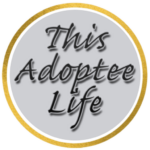


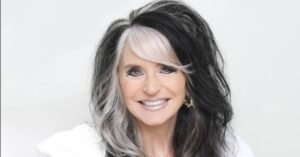
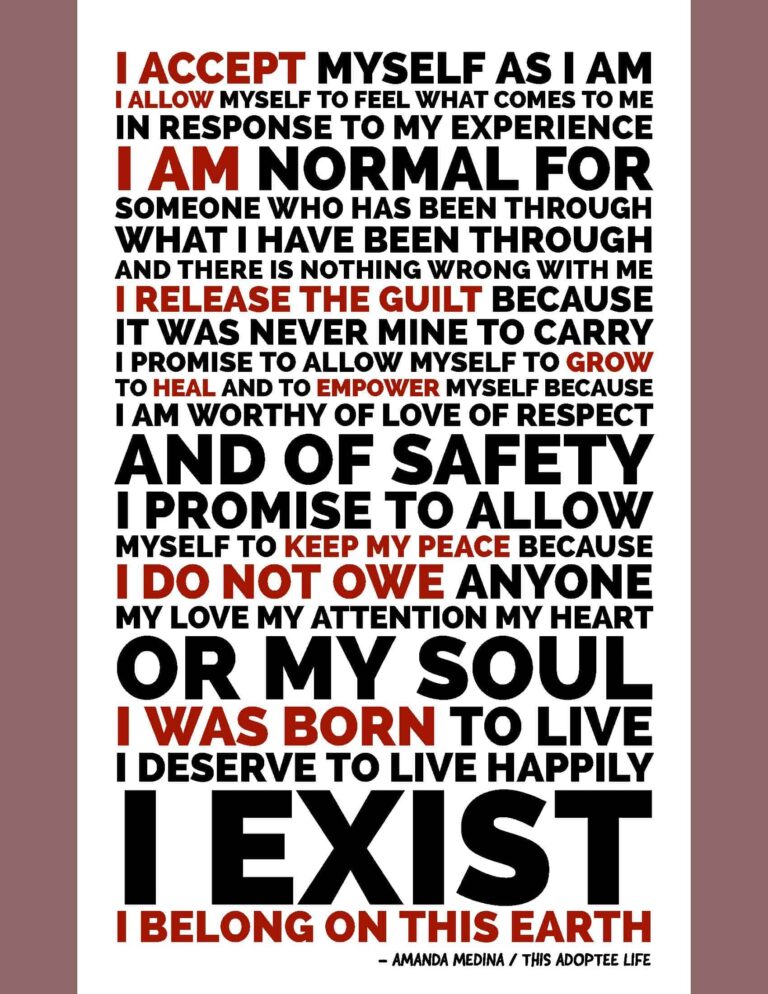
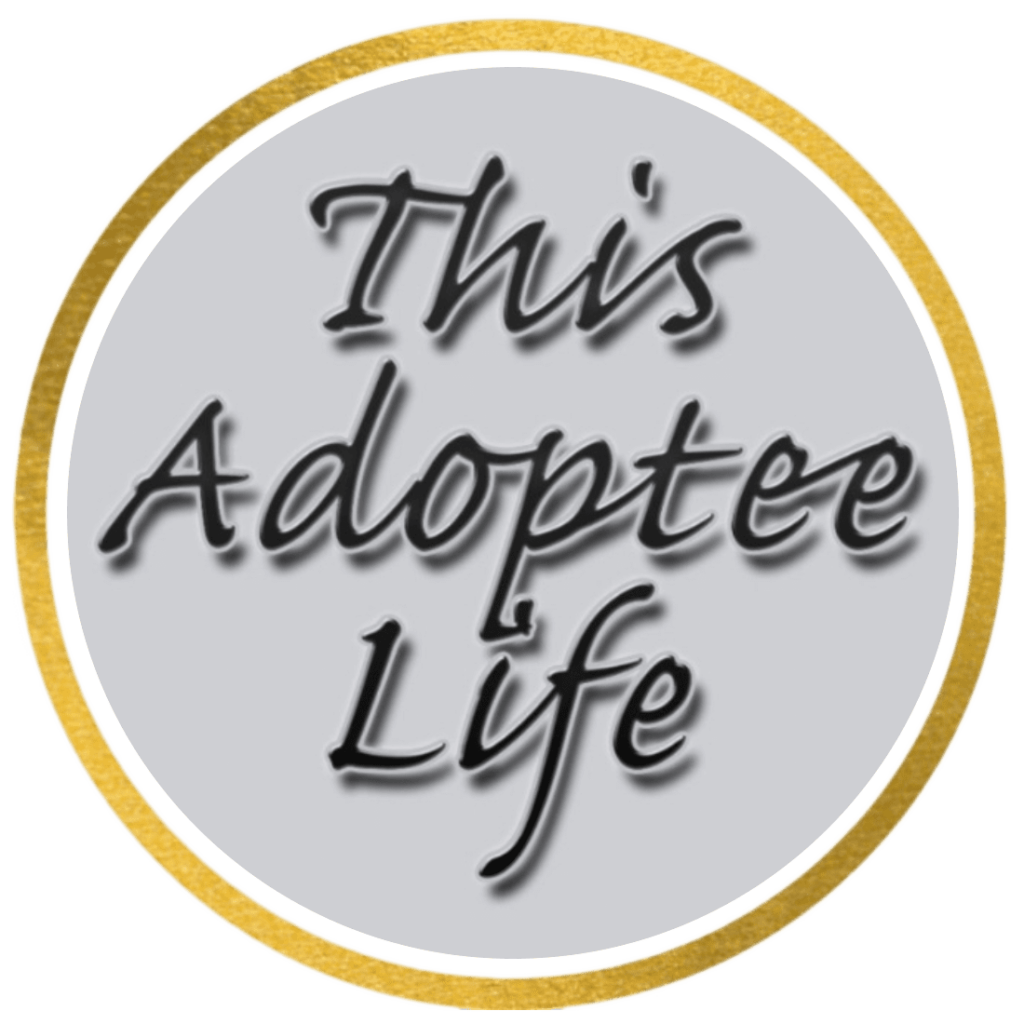
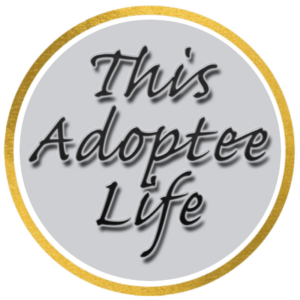
1 thought on “My Adoption Story part 5”
i haven‘t read nancy‘s book yet but i can releate to everything i read here so far :/
thanks for sharing <3